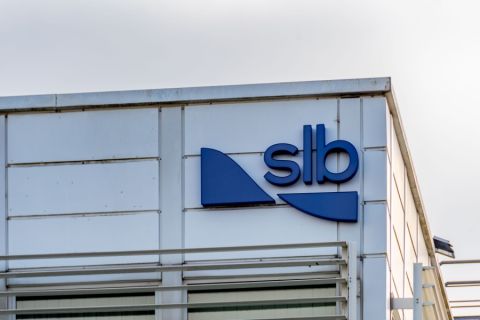
Night view of a petrochemical plant in Edmonton, Alberta.
KANASKIS, Alberta—The primary constraint to an expansion of the Canadian petrochemical industry is the lack of government incentives offered by other jurisdictions, most notably state governments in the U.S., attendees were told at the recent two-day CERI 2017 Petrochemical Conference.
Allan Fogwill, president of the Canadian Energy Research Institute, said there is a lot of optimism within the national industry, but that rosy feeling hasn’t translated into capital investment yet, with most of the activity in 2017 taking place in the U.S., particularly the Gulf Coast states.
“There’s been over $200 billion in investment over the last couple of years in the United States, but only roughly $1 billion in investment in Canada. Given that Canada is one-tenth the size, we should be seeing something in the $20 billion range,” Fogwill told Hart Energy.
Canada should be doing better because it has all the basic requirements for petrochemical development—significant availability of feedstock at a reasonable price, and capital and labor costs that are competitive with other jurisdictions, particularly the Gulf Coast.
“The real debate at this point is government support for petrochemicals through various types of incentives, which could range from direct cash payments to tax credits to support for training,” Fogwill said. “And it is more prevalent to find those government support mechanisms in other jurisdictions compared to Alberta and Ontario.”
Last October, Alberta Premier Rachel Notley struck the Alberta Energy Diversification Advisory Committee, which in part was asked to examine petrochemical development opportunities. The Alberta government got a head start on the committee, which reports in June, by committing $500 million for the creation of two propylene plants, one by Inter Pipeline and the other a joint venture between Pembina Pipeline Corp. and Kuwait’s Petrochemical Industries Co. About 1,400 direct and indirect full-time jobs will be created when the facilities open in 2021.
“There’s the opportunity to do things we haven’t even dreamed of yet in terms of finding value-added products of the Alberta hydrocarbons,” Michal C. Moore, energy economist and professor at Cornel University, told Hart Energy. “They’re out there and it’s just going to take a fair number of incentives I think that they take advantage of to actually get at them and use them, but I think that’s going to happen.”
Fogwill said Ontario and federal government officials are talking to industry about the possibility of incentives, but it’s not clear yet if the talks will translate into new policies or specific programs.
Subsidies are not the only issue for the Alberta industry, said Gerry Goobie, principal with Gas Processing Management Inc., who presented on “Petrochemical Feedstock Supply—What Happened to the Alberta Advantage?” at the conference.
“The petrochemical industry really relies on natural gas processing to strip out the ethane and propane feedstocks for processing. And if you don’t produce the methane, then you’ve got a problem,” he told Hart Energy. “And that means LNG exports. It’s pretty simple and there really is no choice around that.”
LNG development on the West Coast has progressed much slower than industry and the British Columbia government—which promoted it heavily during the 2013 election—expected. To date, only the $1.8 billion Woodfibre plant with capacity of 2.1 million tonnes/year and a $400 million expansion to an existing FortisBC facility have been announced.
University of Calgary economist Jennifer Winter says the pace of B.C. LNG investment will be even slower over the next decade.
“Like it or not, Canada’s environmental regulatory process is more cumbersome than our competitors,” she told Hart Energy. “These are slow-moving industries because of the cost that it takes to build a liquefaction facility and so there’s a lot of in-depth analysis to make sure that it is the right decision for companies. Canada has some benefits but we are a more challenging environment, especially because it is a new industry for B.C.”
Lack of LNG demand for methane is not Canada’s only problem, said Dr. Eugene Beaulieu of the School of Public Policy at the University of Calgary. President Donald Trump has made the Alberta industry nervous by pulling out of the Trans Pacific Partnership and triggering the re-negotiation of NAFTA.
“The Alberta petrochemical industry is completely dependent on trade with the U.S. economy and this will not change dramatically in the short run,” Beaulieu told Hart Energy in an email. “But the U.S. shale revolution and the rise of protectionism is clear indication that Alberta needs to find markets outside of North America. Finding access to new and growing markets is crucial and should be the first priority.”
Lack of government incentives, lack of LNG export plants to provide a market for Alberta and northeast B.C. methane, and trade uncertainties with Canada’s only customer represent significant challenges for the petrochemical industry. And if that isn’t enough, Goobie argues that policy makers need to recognize that “this is a big integrated system in which pipelines, LNG, and petrochemicals all have to work together. The system just does not work as a bunch of individual operating facilities.”
Recommended Reading
No Good Vibrations: Neo Oiltools’ Solution to Vibrational Drilling Problems
2024-09-10 - Vibrations cause plenty of costly issues when drilling downhole, but Neo Oiltool’s NeoTork combats these issues, enhancing efficiency and reducing costs.
Adionics Unveils Lithium Extraction Technology For Recycled Batteries
2024-09-09 - The Paris-based company said its liquid-liquid process achieved lithium recoveries of up to 98% across a range of brine concentrations.
SLB Launches New GenAI Platform Lumi
2024-09-17 - Lumi’s machine learning capabilities will be used to enhance SLB’s Delfi digital platform offering for better automation and operational efficiencies.
New Texas 30-MW Data Center Begins Construction
2024-11-11 - Dataprana’s 30-megawatt data center in La Marque, Texas will help satiate the growing demand for cloud services, Web3 applications and digital asset mining.
Range Confirms: Data Center Talk Underway for Marcellus Gas-fired Power
2024-10-24 - Deals will take a while, however, as these multi-gigawatt agreements are also multi-decade investments, said Range Resources CFO Mark Scucci.
Comments
Add new comment
This conversation is moderated according to Hart Energy community rules. Please read the rules before joining the discussion. If you’re experiencing any technical problems, please contact our customer care team.






